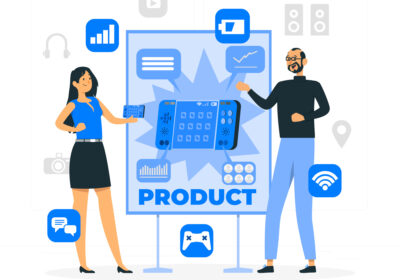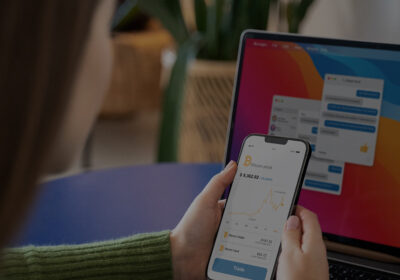The mobile app landscape is constantly evolving, with new technologies and user demands emerging at a rapid pace. To stay ahead of the curve, businesses need to be aware of the latest mobile app development trends. This blog post explores the top 15 trends that are set to shape the industry in 2024 and beyond.
Unveiling the Top 15 Mobile App Development Trends for 2024
The future of mobile apps is here, brimming with innovation and exciting possibilities. Here’s a glimpse into the top 15 mobile app development trends that will redefine the user experience and shape the industry landscape in 2024:
5G Ushers in a New Era of Mobile Experiences
The arrival of 5G technology promises a significant leap in mobile network speeds and bandwidth. This opens up a world of possibilities for mobile app developers, enabling them to create more immersive, data-driven experiences. Expect to see features like real-time video streaming, augmented reality (AR), and cloud gaming become more prevalent as 5G adoption increases.
Foldable Devices Demand Innovative App Design
Foldable smartphones and tablets are gaining traction in the market, presenting a unique challenge for app developers. Traditional app layouts need to be adapted to accommodate the larger, flexible screens of these devices. This trend will necessitate innovative UI/UX design approaches to ensure a seamless user experience across different device configurations.
The Internet of Things (IoT) Goes Mobile
The integration of mobile apps with IoT devices is another major trend on the horizon. Imagine controlling your smart home appliances, wearables, or connected cars directly from your smartphone. Mobile apps will play a crucial role in managing and interacting with an ever-growing network of connected devices.
Augmented Reality (AR) Breaks Barriers Between Physical and Digital
AR technology is poised to revolutionize the way we interact with the world around us. Mobile apps that leverage AR can overlay digital information onto the physical world, creating engaging and interactive experiences. From product visualization in e-commerce to educational AR apps, the potential applications are vast.
Beacon Technology Enhances Physical-Digital Experiences
Beacon technology uses Bluetooth Low Energy (BLE) to transmit signals to nearby smartphones. Mobile apps can leverage these signals to trigger location-based actions or deliver targeted content. Imagine receiving personalized offers in a retail store or receiving information about a historical landmark as you approach it. Beacon technology offers a powerful way to bridge the gap between the physical and digital worlds.
Artificial Intelligence (AI) and Machine Learning (ML) Power Personalization and Automation:
Mobile apps are leveraging AI and ML to personalize user experiences, predict user behavior, and automate tasks. Imagine a shopping app that recommends products based on your past purchases or a fitness app that tailors workout plans to your individual fitness level.
Chatbots Deliver 24/7 Customer Support and Enhance User Engagement:
Chatbots powered by AI are transforming customer service by providing 24/7 support and answering user queries in real-time. They can also be used to engage users, answer frequently asked questions, and even collect valuable customer data.
Mobile Wallets and Contactless Payments Gain Momentum:
The convenience and security of mobile wallets are driving their widespread adoption. Mobile apps integrated with mobile wallets allow for seamless and secure contactless payments, making the checkout process faster and more efficient.
Cloud-Based Mobile Applications Ensure Scalability and Efficiency:
Cloud-based mobile apps offer several advantages, including scalability, flexibility, and reduced development costs. Data is stored and processed in the cloud, eliminating the need for businesses to maintain on-premise infrastructure.
Cross-Platform Mobile Development Streamlines App Creation:
Developing separate apps for different operating systems (iOS and Android) can be time-consuming and expensive. Cross-platform development tools allow developers to create a single codebase that can be deployed on both platforms, saving time and resources.
Voice Recognition Revolutionizes How We Interact with Apps:
Voice recognition technology is making it easier and more natural for users to interact with mobile apps. Imagine controlling your smart home devices with voice commands or searching for information hands-free.
Superior App Security is Paramount in a Data-Driven World:
As mobile apps collect and store more user data, robust security measures are critical. Developers need to prioritize data encryption, secure authentication methods, and regular security updates to protect user privacy and prevent cyberattacks.
Predictive Analytics Drives User Engagement and Retention:
Mobile apps can leverage predictive analytics to anticipate user needs and preferences. This allows for targeted marketing campaigns, personalized recommendations, and proactive customer support, ultimately leading to higher user engagement and retention.
On-Demand Apps Cater to the Need for Instant Gratification:
The on-demand economy is thriving, and mobile apps are at the forefront. From food delivery and ride-hailing services to on-demand laundry and home cleaning, these apps cater to the growing desire for instant gratification and convenience.
Touchless UI Prioritizes Hygiene and Accessibility:
The COVID-19 pandemic has accelerated the adoption of touchless user interfaces (UI). Technologies like gesture recognition, voice commands, and facial recognition offer a more hygienic and accessible way to interact with mobile apps.
Choosing the Best Mobile App Development Company
With this vast array of mobile app development trends to consider, navigating the landscape can be challenging. Partnering with a reputable and experienced mobile app development company like Verbat Technologies is crucial for success. Verbat offers a comprehensive suite of services, from concept development and design to development and deployment. Their team of skilled developers stays at the forefront of the latest trends, ensuring your app is built to leverage the latest advancements in mobile technology.
Conclusion
The mobile app development trends are evolving at a rapid pace. The landscape is brimming with exciting possibilities. By staying informed about the latest trends and partnering with the right development team, businesses can create innovative and engaging mobile apps that captivate users and drive success





